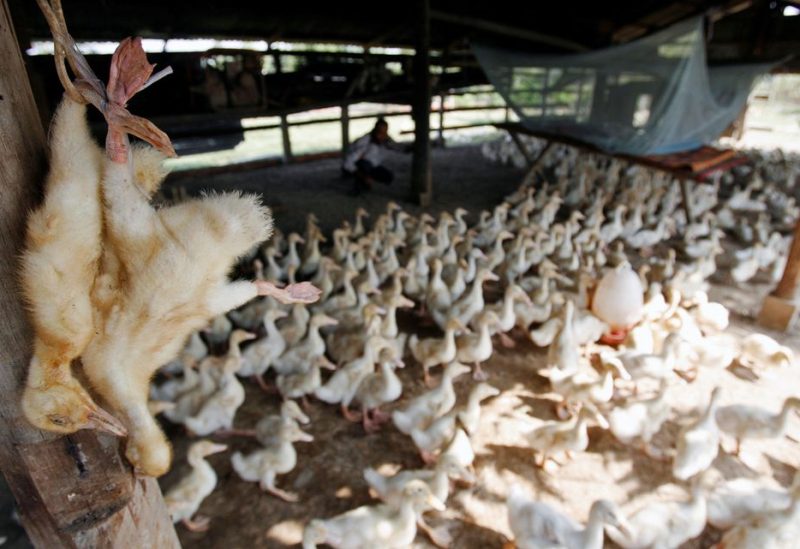
Dead ducks are hung at a farm in the outskirts of Phnom Penh December 17, 2008. REUTERS/Chor Sokunthea
The U.S. Centers for Disease Control and Prevention (CDC) reported that the viruses that caused two cases of H5N1 avian influenza in Cambodia have been identified as an endemic clade of bird flu prevalent throughout the nation.
Concerns about a new strain of H5N1, clade 2.3.4.4b, which first surfaced in 2020 and has recently been responsible for unprecedented levels of mortality among domestic and wild birds, were raised by the cases reported last week.
But work so far suggests this is not the case.
Preliminary genetic sequencing carried out in Cambodia led its health ministry to identify the viruses as H5 clade 2.3.2.1c, which has circulated in Cambodia among birds and poultry for many years and has sporadically caused infections in people, the CDC said in a statement on Saturday.
“Yes, this is an older clade of avian influenza that had been circulating around the region for a number of years and while it has caused human infections in the past, it has not been seen to cause human-to-human transmission. However, that doesn’t mean that the threat is any less,” said Erik Karlsson, director of the National Influenza Center of Cambodia and acting head of virology at the Institut Pasteur du Cambodge, which sequenced the virus.
He added that the response needed to be coordinated and swift to prevent any further spread and to limit exposure to any common source.
An investigation into the source and to detect any additional cases is ongoing, the CDC said, adding that so far there had been no indication of person-to-person spread.
Cambodia tested at least 12 people for the H5N1 strain last week, after an 11-year-old girl died from the virus in the first known transmission to humans in the country in nearly a decade.
According to a statement from Cambodia’s Health Minister Mam Bunheng on Friday, the victim’s father, who was a member of the group the victim had contact with in a province east of the capital Phnom Penh, tested positive for the virus but showed no symptoms.
According to Karlsson, only the girl’s case has been sequenced, and work is still being done on the father’s case.
Because of the recent increase in cases in birds and mammals, the World Health Organization says it is collaborating with Cambodian authorities to investigate the cases.